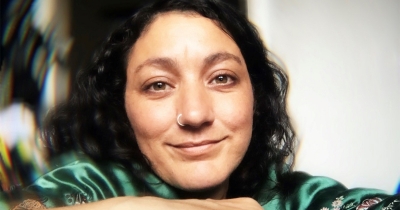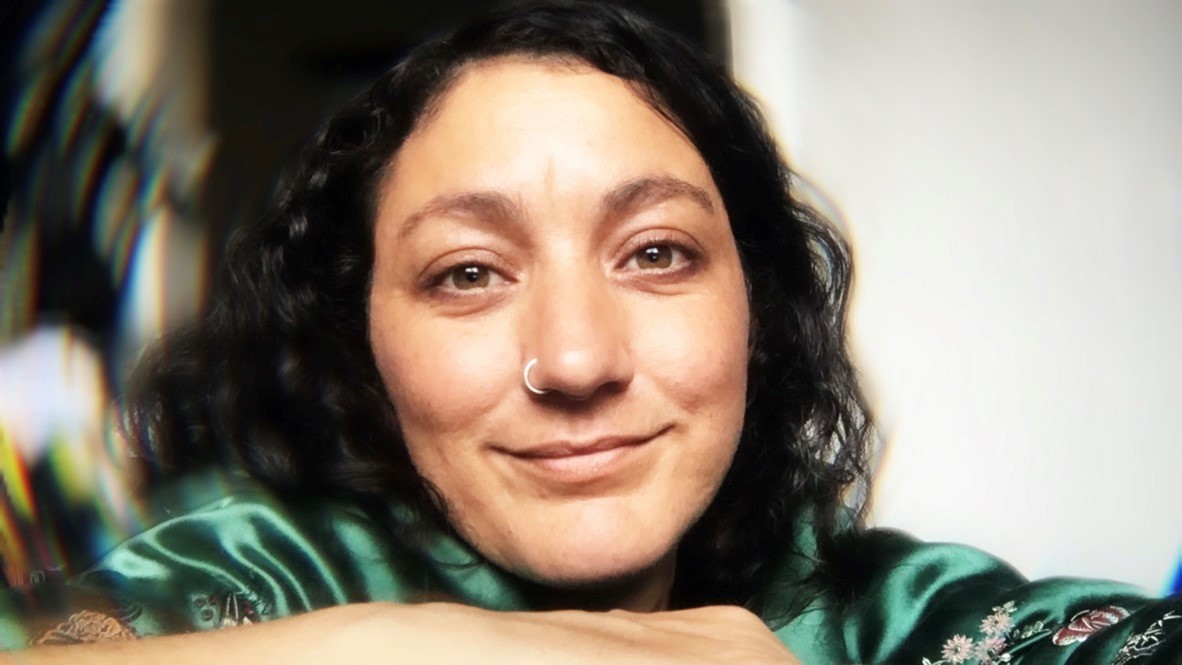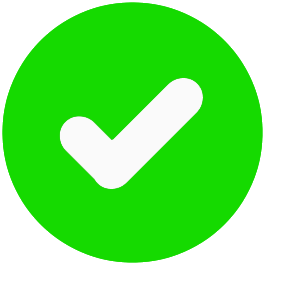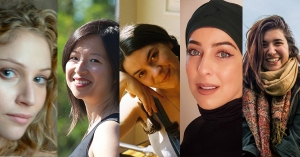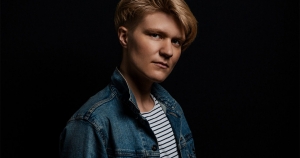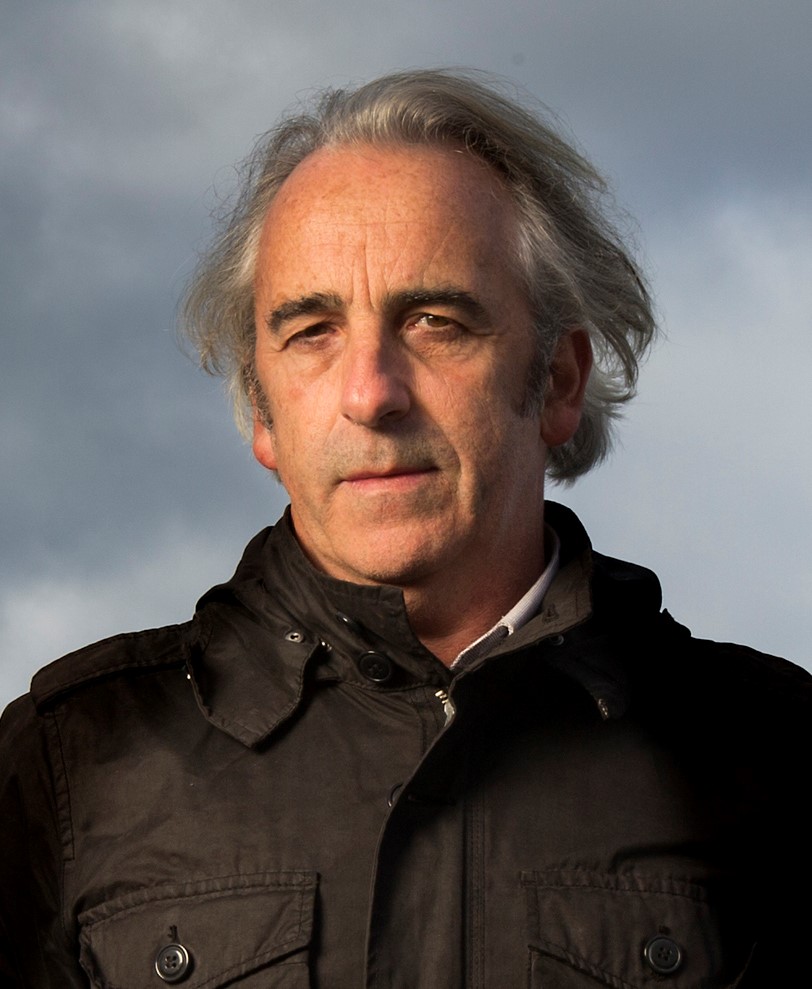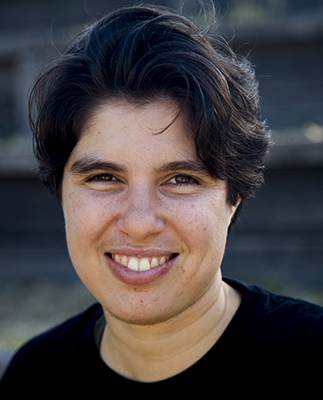Competitions and programs (118)
Winner | 2020 Jolley Prize | Mykaela Saunders for 'River Story'
2020 Jolley Prize Winner: Mykaela Saunders
ABR is delighted to announce that Mykaela Saunders is the overall winner of the 2020 ABR Elizabeth Jolley Short Story Prize for her story ‘River Story’. Mykaela Saunders receives $6,000. C.J. Garrow was placed second for his story 'Egg Timer', and Simone Hollander was placed third for her story 'Hieroglyph'. We would like to congratulate all three shortlisted entrants and thank all those who entered their stories in the Jolley Prize.
The ABR Elizabeth Jolley Short Story Prize is one of the country’s most prestigious awards for short fiction. This year the Jolley Prize attracted almost 1,450 entries from 34 different countries. The judges were Gregory Day, Josephine Rowe, and Ellen van Neerven. The three shortlisted stories appear in our August Fiction issue.
About Mykaela Saunders
Mykaela Saunders is a Koori writer, teacher, and community researcher. Of Dharug and Lebanese ancestry, she’s working-class and queer, and belongs to the Tweed Aboriginal community. Mykaela has worked in Aboriginal education since 2003, and her research explores trans-generational trauma and healing in her community. Mykaela began writing fiction and poetry in 2017, as part of her Doctor of Arts degree at the University of Sydney. Her work has since been published across forms and disciplines, placed in writing prizes, and attracted funding and fellowships.
Payment Complete – Peter Porter Poetry Prize
Thank you for entering the Peter Porter Poetry Prize.
If you created a new account to enter, you can now sign in with the Username and Password you entered. Simply click ‘Sign In’ in the top left-hand corner to enter your details. We hope you enjoy reading our extensive archive going back to 1978.
If you wish to submit another entry to the Porter Prize, click here to return to the entry form. Remember to first sign in with your new ABR account before entering multiple entries.
2021 Porter Prize Judges
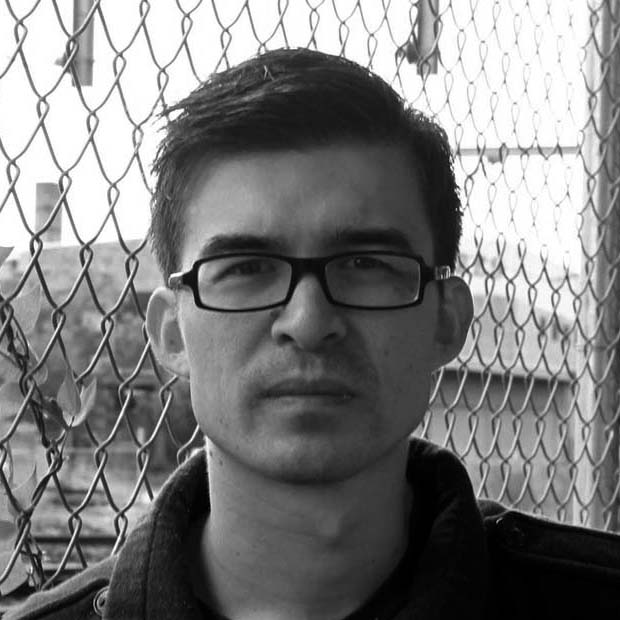 Lachlan Brown is a senior lecturer in English at Charles Sturt University, Wagga Wagga. He is the author of Limited Cities (Giramondo, 2012) and Lunar Inheritance (Giramondo, 2017). Lachlan has been shortlisted and commended for various poetry prizes including the Mary Gilmore Prize, the Newcastle Poetry Prize, the Gwen Harwood Poetry Prize, the Judith Wright Poetry Prize, and the Macquarie Fields Poetry Prize. Lachlan is currently the vice-president of Booranga Writers Centre in Wagga Wagga. His poem 'Precision Signs' was shortlisted in the 2020 Peter Porter Poetry Prize.
Lachlan Brown is a senior lecturer in English at Charles Sturt University, Wagga Wagga. He is the author of Limited Cities (Giramondo, 2012) and Lunar Inheritance (Giramondo, 2017). Lachlan has been shortlisted and commended for various poetry prizes including the Mary Gilmore Prize, the Newcastle Poetry Prize, the Gwen Harwood Poetry Prize, the Judith Wright Poetry Prize, and the Macquarie Fields Poetry Prize. Lachlan is currently the vice-president of Booranga Writers Centre in Wagga Wagga. His poem 'Precision Signs' was shortlisted in the 2020 Peter Porter Poetry Prize.
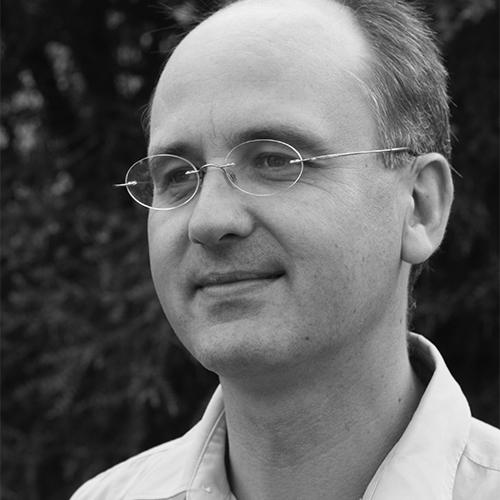 John Hawke is a Senior Lecturer, specialising in poetry, at Monash University. His books include Australian Literature and the Symbolist Movement, Poetry and the Trace (co-edited with Ann Vickery), and the volume of poetry Aurelia, which received the 2015 Anne Elder award. He is ABR's Poetry Editor.
John Hawke is a Senior Lecturer, specialising in poetry, at Monash University. His books include Australian Literature and the Symbolist Movement, Poetry and the Trace (co-edited with Ann Vickery), and the volume of poetry Aurelia, which received the 2015 Anne Elder award. He is ABR's Poetry Editor.
 A Frances Johnson is a writer, artist, and a Senior Lecturer at the University of Melbourne. Her fourth poetry collection, Save As, is forthcoming from Puncher & Wattmann. A previous collection, Rendition for Harp and Kalashnikov (Puncher & Wattmann, 2017), was shortlisted in the 2018 Melbourne Prize for Literature Best New Writing Award. Other books include the novel Eugene's Falls (Arcadia, 2007), which retraces the journeys of colonial painter Eugene von Guérard, and a monograph, Australian Fiction as Archival Salvage (Brill, 2015). Her poem ‘My Father’s Thesaurus’ won the 2020 Peter Porter Poetry Prize.
A Frances Johnson is a writer, artist, and a Senior Lecturer at the University of Melbourne. Her fourth poetry collection, Save As, is forthcoming from Puncher & Wattmann. A previous collection, Rendition for Harp and Kalashnikov (Puncher & Wattmann, 2017), was shortlisted in the 2018 Melbourne Prize for Literature Best New Writing Award. Other books include the novel Eugene's Falls (Arcadia, 2007), which retraces the journeys of colonial painter Eugene von Guérard, and a monograph, Australian Fiction as Archival Salvage (Brill, 2015). Her poem ‘My Father’s Thesaurus’ won the 2020 Peter Porter Poetry Prize.
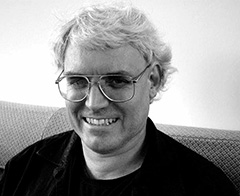 John Kinsella is the author of over forty books. His most recent publications include Displaced: A rural memoir (2020), The Weave (with Thurston Moore, 2020), and Insomnia (2020). His poetry collections have won a variety of awards, including the Prime Minister's Literary Award for Poetry and the Christopher Brennan Award for Poetry. His volumes of stories include In the Shade of the Shady Tree (Ohio University Press, 2012), Crow’s Breath (Transit Lounge, 2015), and Old Growth (Transit Lounge, 2017). He is a Fellow of Churchill College, Cambridge University, and Professor of Literature and Environment at Curtin University. With Tracy Ryan he is the co-editor of The Fremantle Press Anthology of The Western Australian Poetry (2017). He lives with his family in the Western Australian wheatbelt.
John Kinsella is the author of over forty books. His most recent publications include Displaced: A rural memoir (2020), The Weave (with Thurston Moore, 2020), and Insomnia (2020). His poetry collections have won a variety of awards, including the Prime Minister's Literary Award for Poetry and the Christopher Brennan Award for Poetry. His volumes of stories include In the Shade of the Shady Tree (Ohio University Press, 2012), Crow’s Breath (Transit Lounge, 2015), and Old Growth (Transit Lounge, 2017). He is a Fellow of Churchill College, Cambridge University, and Professor of Literature and Environment at Curtin University. With Tracy Ryan he is the co-editor of The Fremantle Press Anthology of The Western Australian Poetry (2017). He lives with his family in the Western Australian wheatbelt.
2021 Peter Porter Poetry Prize
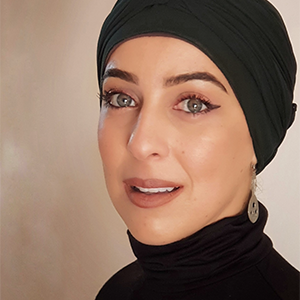 Australian Book Review is pleased to announce Sara M. Saleh as the winner of the 2021 Peter Porter Poetry Prize, worth $10,000, for their poem 'A Poetics of Fo(u)rgetting'. Sara receives $6,000, and each fellow shortlisted poet receives $1,000.
Australian Book Review is pleased to announce Sara M. Saleh as the winner of the 2021 Peter Porter Poetry Prize, worth $10,000, for their poem 'A Poetics of Fo(u)rgetting'. Sara receives $6,000, and each fellow shortlisted poet receives $1,000.
This year’s judges – John Hawke, Lachlan Brown, A. Frances Johnson, and John Kinsella – shortlisted five poems from 1,329 entries, from 33 countries. The shortlisted poets were Danielle Blau (USA), Y.S. Lee (Canada), Jazz Money (NSW), Sara M. Saleh (NSW), and Raisa Tolchinsky (USA). To read the shortlisted poems, please click here.
At the event, A. Frances Johnson spoke on behalf of the judges:
It’s a big pleasure to speak on behalf of my fellow judges: Lachlan Brown, John Hawke, and John Kinsella.
While I know we’re all Zoom weary, I hope this summer ceremony is well timed, an antidote to yesterday’s Invasion Day with its colonial ra-ra-ra and official eclipse of possibilities for national mourning: ‘… in the New World, happiness is enforced,’ Peter Porter notably said.
I am speaking from unceded Gadabanud country at Cape Otway, population twenty-two – a villagey-sounding statistic but one that conceals the unspeakable loss that occurred with settler administrative determination to build a lighthouse in the mid to late 1840s. So, on the back of January 26th, I pay sombre and sincere respects to Gunditj Maar elders past, present and future.
In the year of pandemic, vile Trumpist trumpeting, and when disgraceful Australian politicians (many of them arts graduates) increased humanities course fees by 113%, poets did not lay down and rest. This year’s huge volume of submissions – a bumper crop in the history of the Porter Prize – points to a renewed desire to contest the crushing political and bureaucratic language of our times. This upswing in poetic energy is reason for cheer. Peter Porter’s witty definition of a poem applies more than ever: ‘A poem is a form of refrigeration that stops language going bad’.
We congratulate all twelve longlistees, Australian and international. Unsurprisingly, themes of ruined ecologies and mortality feature. Many poems demonstrated great imaginative fealty with histories of language, poetry, and culture; these stood out, as did poems resisting easy closure, easy language fixes. Elsewhere, outstanding poems tackled themes of race, displacement, environment, and feminism, but without virtue-signalling or over-burdened visions of endtimes.
Determining the shortlist was the most difficult part of proceedings. Each longlisted poem was a potential winner. We read, re-read, and re-read some more. Happily, thoughtful, logical correspondences in our final judgements prevailed. I’ll now talk briefly to the final shortlist of five.
Wiradjuri poet Jazz Money’s ‘bila: A river cycle’ is an epically beautiful free-verse poem of bila and bilabang, rivers and riverine drybeds. This poem explores toxic poetics, linking it with the great postcolonial environmental writing of Alexis Wright, Oodgeroo, Lionel Fogarty, Jeanine Leane, and Tara June Winch. Both lamentation and reclamation, this poem reflects ancient and continuous Aboriginal ecological knowledge held within the sacredness of place. The poem’s formal range moves from vernacular free verse to open-field poetic, and finally to language- and ecology-rich creation story. The poem concludes with images of resilience. Bila, all bila, survive, even if degraded.
‘The poetics of fo(u)rgetting’ by Arab-Australian poet Sara M. Saleh tells the story a resettled Lebanese refugee family from a daughter’s point of view. ‘I forget tradition,’ the narrator opens, passing around a tray of sticky dates. Chewing and spitting back the date pits enables the women to ‘break the dusk’. The poet deploys searing lines of diasporic alienation: ‘I forget how our Lebanon made its way to Lakemba … We pretend not to notice, this neighborhood is an obituary’. The double shellshock of a family displaced by war is evoked with quiet pathos. But cultural observances mean one thing to the older generation and another to the next. These ruptures were sensitively observed across this lush, cinematic poem.
‘Vernal equinox story’ is a brilliant time-travelling language poem by American poet Danielle Blau. The poem’s experimental heft and wildly imaginative ecocritical wit drive the poem home to a bodily coda (‘we silt – we water & sand – we muck – we here – we filth – we / Matter. Yes. Behold!/ our forms!’). A marvellous collective incantatory voice informs this poem of vibrant matter. But the chant suggests that humans may not matter very much at all! If matter can be read backwards and forwards, so too can language, as with the palindrome. The poem and its palindromes evoke archaic superstitious language, but also a threatening absurdity, for the palindrome tribe belong nowhere. Blau’s parodic language cleverly places words, humans, and time under pressure.
‘Before dawn, with the Streetlamp’s beam across your face’ by American poet Raisa Tolchinsky may be a poem of the #MeToo Zeitgeist. This dramatic, unidealised depiction of a woman boxer has little to do with a two-dimensional Wonder Woman fighting her way through mean streets. The second-person vernacular boldly interpellates the reader. This voice is offset by a doubting inner monologue. ‘You choose this don’t you’, the narrator opines. But seasoned by months of training, the protagonist asserts in quiet feminist desperation, ‘Now you are not a girl walking through the park/but a myth of inbetween …’, as if gender might be transcended. The imaging of the city, the grimy, macho gym and the protagonist’s hardened transactions with casual sexism are variously vivid, ironic and visceral. The poem itself is a clever, moving fight, shadow boxing ideas of female assertion.
‘Would you Rather’ by Singaporean–Canadian poet Y.S. Lee is a moving work in which a parent figure, discussing their ‘white passing kid’ with a friend, reflects on the ways racism constrains identity: ‘I squandered half my life in the quest / to be good …. / Later I grasped that good meant White. / By then my body was the shape of apology.’ This poem splices dialogue and inner monologue to reveal intercultural and intergenerational complexities. The poem has a laudable wit and restraint, restraint itself being part of the ‘tiny tragedy’ of the poem, a metaphor for self-imposed invisibility. This poem moves us precisely because it deftly sums up an experience that is important for people who aren’t from Anglo-Celtic backgrounds.
Congratulations again to all our featured poets. Your work was much admired and we, the judges, are still properly haunted by the many wonderful lines and images supporting and driving your ideas.
Thank you.
'The Vernal Equinox Story' by Danielle Blau (USA)
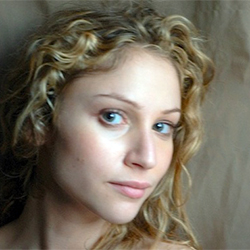 Danielle Blau’s Rhyme or Reason: Poets, philosophers, and the problem of being here now is forthcoming from W.W. Norton. Her chapbook mere eye was selected for a Poetry Society of America Chapbook Award and published with an introduction by poet D.A. Powell, and her poems won first place in the multi-genre Narrative 30 Below Contest. Poetry, short stories, articles, and interviews by Blau appear in various publications. A graduate of Brown University with an honours degree in philosophy, and of New York University with an MFA in poetry, she curates and hosts the monthly Gavagai Music + Reading Series in Brooklyn, teaches at Hunter College in Manhattan, and lives in Queens. You can learn more about her at danielleblau.com.
Danielle Blau’s Rhyme or Reason: Poets, philosophers, and the problem of being here now is forthcoming from W.W. Norton. Her chapbook mere eye was selected for a Poetry Society of America Chapbook Award and published with an introduction by poet D.A. Powell, and her poems won first place in the multi-genre Narrative 30 Below Contest. Poetry, short stories, articles, and interviews by Blau appear in various publications. A graduate of Brown University with an honours degree in philosophy, and of New York University with an MFA in poetry, she curates and hosts the monthly Gavagai Music + Reading Series in Brooklyn, teaches at Hunter College in Manhattan, and lives in Queens. You can learn more about her at danielleblau.com.
'Would You Rather' by Y.S. Lee (Canada)
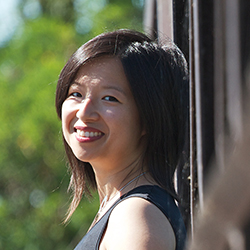 Y.S. Lee’s fiction includes the young adult mystery series The Agency (Candlewick Press/Walker Books), which was translated into six languages and has either won or been shortlisted for various prizes. In July 2020, her poem ‘Mr. T in Your Pocket’ won Arc Poetry Magazine’s monthly Award of Awesomeness. She lives in Kingston, Ontario, Canada, within traditional Anishinaabe and Haudenosaunee territory.
Y.S. Lee’s fiction includes the young adult mystery series The Agency (Candlewick Press/Walker Books), which was translated into six languages and has either won or been shortlisted for various prizes. In July 2020, her poem ‘Mr. T in Your Pocket’ won Arc Poetry Magazine’s monthly Award of Awesomeness. She lives in Kingston, Ontario, Canada, within traditional Anishinaabe and Haudenosaunee territory.
'bila, a river cycle' by Jazz Money (NSW)
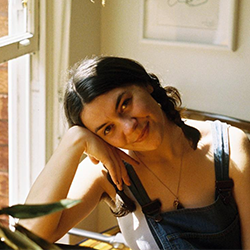 Jazz Money is a poet and filmmaker of Wiradjuri heritage, currently based on the beautiful sovereign lands of the Darug and Gundungurra nations. Her poetry has been published widely and reimagined as murals, installation, and film. Jazz is the 2020 winner of the David Unaipon Award from the State Library of Queensland, and her début collection of poetry is forthcoming from University of Queensland Press in 2021.
Jazz Money is a poet and filmmaker of Wiradjuri heritage, currently based on the beautiful sovereign lands of the Darug and Gundungurra nations. Her poetry has been published widely and reimagined as murals, installation, and film. Jazz is the 2020 winner of the David Unaipon Award from the State Library of Queensland, and her début collection of poetry is forthcoming from University of Queensland Press in 2021.
'A Poetics of Fo(u)rgetting' by Sara M. Saleh (NSW)
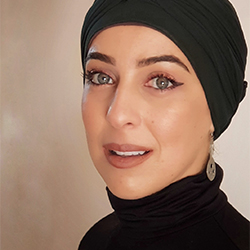 Sara M. Saleh is the daughter of migrants from Palestine, Egypt, and Lebanon, living and learning on Gadigal land. A human rights activist, community organiser, and campaigner for refugee rights and racial justice, she has spent over a decade in grassroots and international organisations in Australia and the Middle East. Her poetry and writing has been published in English and Arabic in various places. She is co-editor of the recently released anthology, Arab-Australian-Other: Stories on Race and Identity. She is currently developing her first novel as a recipient of the inaugural Affirm Press Mentorship for Sweatshop Western Sydney.
Sara M. Saleh is the daughter of migrants from Palestine, Egypt, and Lebanon, living and learning on Gadigal land. A human rights activist, community organiser, and campaigner for refugee rights and racial justice, she has spent over a decade in grassroots and international organisations in Australia and the Middle East. Her poetry and writing has been published in English and Arabic in various places. She is co-editor of the recently released anthology, Arab-Australian-Other: Stories on Race and Identity. She is currently developing her first novel as a recipient of the inaugural Affirm Press Mentorship for Sweatshop Western Sydney.
'before dawn, with the street lamp's beam across your face' by Raisa Tolchinsky (USA)
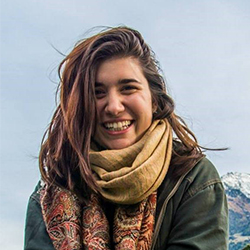 Raisa Tolchinsky is a poet, editor, and teacher. She has previously lived and worked in Chicago, New York, Italy, and Iceland, and she is trained as an amateur boxer. Raisa received her BA in English Literature and Italian Studies from Bowdoin College and the University of Bologna. Currently, Raisa is a Poe/Faulkner fellow in poetry at the University of Virginia. More of her work can be found at www.raisatolchinsky.com
Raisa Tolchinsky is a poet, editor, and teacher. She has previously lived and worked in Chicago, New York, Italy, and Iceland, and she is trained as an amateur boxer. Raisa received her BA in English Literature and Italian Studies from Bowdoin College and the University of Bologna. Currently, Raisa is a Poe/Faulkner fellow in poetry at the University of Virginia. More of her work can be found at www.raisatolchinsky.com
Danielle Blau (USA), ‘The Vernal Equinox Story’ – Shortlisted
Bonny Cassidy (Vic.), ‘Title’ – Longlisted
Suzanne Cleary (USA), ‘For the Poet Who Writes to Me While Standing in Line at CVS, Waiting for His Mother's Prescription’ – Longlisted
Justin Clemens (Vic.), ‘Thus Spuke Zerothruster’ – Longlisted
Kristen Lang (Tas.), ‘framing the mirror’ – Longlisted
Anthony Lawrence (QLD), ‘Levitation’ – Longlisted
Y.S. Lee (Canada), ‘Would You Rather’ – Shortlisted
Fiona Lynch (Vic.), ‘The Audit’ – Longlisted
Damen O’Brien (QLD), ‘Carpool’ – Longlisted
Jazz Money (NSW), ‘bila, a river cycle’ – Shortlisted
Sara M. Saleh (NSW), ‘A Poetics of Fo(u)rgetting’ – Shortlisted
Raisa Tolchinsky (USA), ‘before dawn, with the street lamp’s beam across your face’– Shortlisted
Click here for more information about past winners and to read their poems.
We gratefully acknowledge the long-standing support of Morag Fraser AM and Andrew Taylor AM.
2020 Calibre Essay Prize winner: Yves Rees
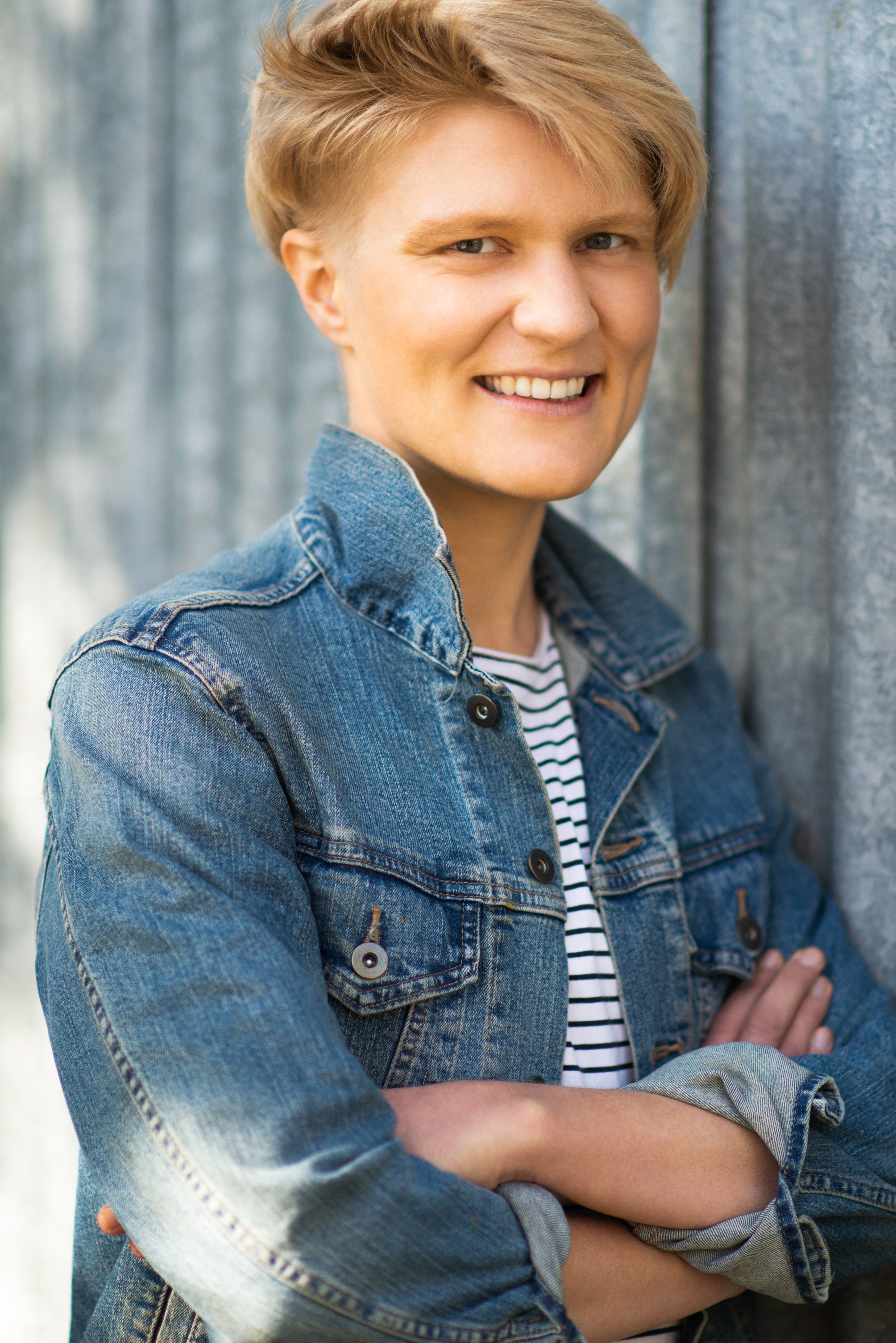 Yves Rees (photograph by Susan Papazian)Yves Rees is the winner of the 2020 Calibre Essay Prize, worth a total of $7,500, for their essay ‘Reading the Mess Backwards’. As Rees writes, the essay is ‘a story of trans becoming that digs into the messiness of bodies, gender and identity’. Yves Rees receives $5,000.
Yves Rees (photograph by Susan Papazian)Yves Rees is the winner of the 2020 Calibre Essay Prize, worth a total of $7,500, for their essay ‘Reading the Mess Backwards’. As Rees writes, the essay is ‘a story of trans becoming that digs into the messiness of bodies, gender and identity’. Yves Rees receives $5,000.
Kate Middleton was named runner-up for ‘The Dolorimeter’, a highly personal account of the author’s experience with illness. She receives $2,500.
ABR Editor Peter Rose judged the Prize with J.M. Coetzee (Nobel Laureate) and Lisa Gorton, (poet, novelist, and essayist). They chose Yves Rees's winning essay from almost 600 entries from twenty-nine different countries, a record field.
‘Reading the Mess Backwards’ appears in the June-July 2020 issue. We look forward to publishing Kate Middleton's essay 'The Dolorimeter' in the August 2020 issue.
Yves Rees on ‘Reading the Mess Backwards’
Having come out as transgender aged thirty-one, I re-examine my youth in light of this new knowledge. 'Reading the Mess Backwards' explores how we come to understand and perform our gender in a world of restrictive binaries and male dominance. By insisting upon the slippery nature of gendered identity, the essay questions what means to be 'male' or 'female' – and raises the possibility of being something else altogether.
Yves Rees on winning the Calibre Prize
I am honoured to be awarded the Calibre Prize, especially given the large field this year. In my essay, I’ve sketched the kind of narrative I hungered to read: a story of trans becoming that digs into the messiness of bodies, gender and identity. My hope is that, as such stories proliferate, we will all – men and women, cisgender and trans – be liberated from the prison of patriarchy, with its suffocating gender binary. The recognition afforded by the Calibre Prize is an important step in that struggle.
Commendations
In addition, the judges commended five essays, and we look forward to publishing some of them in coming months. They are:
- Sue Cochius: ‘Mrs Mahomet’
- Julian Davies: ‘A Small Boy and Cambodia’
- Mireille Juchau: ‘Only One Refused’
- Laura Kolbe: ‘Human Women, Magic Flutes’
- Meredith Wattison: ‘Ambivalence: The Afterlife of Patrick White’
About Yves Rees
Dr Yves Rees is a writer and historian living on unceded Wurundjeri land. At present, Yves is a Lecturer in History at La Trobe University and co-host of the history podcast Archive Fever. Yves has published widely across Australian gender, transnational and economic history, and also writes on transgender identity and politics. Yves is a regular contributor to ABC Radio and The Conversation.
About Kate Middleton
Kate Middleton is an Australian writer. She is the author of the poetry collections Fire Season (Giramondo, 2009), awarded the Western Australian Premier’s Award for Poetry in 2009 and Ephemeral Waters (Giramondo, 2013), shortlisted for the NSW Premier’s award in 2014. From September 2011 to September 2012 she was the inaugural Sydney City Poet.
Further information
Subscribe to ABR to gain access to this issue, plus the ABR archive.
Click here for more information about past winners and to read their essays.
We look forward to offering the Calibre Essay Prize again in 2021.
ABR gratefully acknowledges the generous support from Colin Golvan AM QC, and Peter McLennan and Mary-Ruth Sindrey, whose donations make the Calibre Essay Prize possible in this form.
2020 Jolley Prize Judges
Gregory Day is a novelist, poet, and composer from the Eastern Otways region of southwest Victoria, Australia. His latest novel A Sand Archive was shortlisted for the 2019 Miles Franklin Award and his essay 'Summer on The Painkalac' was also shortlisted for the 2019 Nature Conservancy Nature Writing Prize. Day is a winner of the Australian Literature Society Gold Medal and was joint winner of the 2011 ABR Elizabeth Jolley Short Story Prize for 'The Neighbour's Beans'.
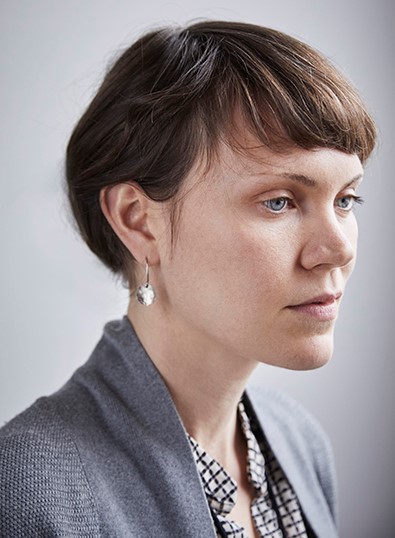
Josephine Rowe is the author of three story collections and a novel, A Loving, Faithful Animal (2016). She is a fellow of the Wallace Stegner Program at Stanford University, and her writing has appeared in McSweeney's Quarterly Concern, Meanjin, Literary Hub, The Monthly, Granta, and elsewhere. Rowe's short story ‘Glisk’ won the 2016 ABR Elizabeth Jolley Short Story Prize. Her new story collection, Here Until August, is published by Black Inc.
Ellen van Neerven (born in Meanjin (Brisbane) in 1990) is an award-winning writer and editor of Mununjali Yugambeh (South East Queensland) and Dutch heritage. Ellen’s first book, Heat and Light, was the recipient of the David Unaipon Award, the Dobbie Literary Award and the NSW Premier’s Literary Awards Indigenous Writers Prize. Ellen’s second book, a collection of poetry, Comfort Food, was shortlisted for the NSW Premier’s Literary Awards Kenneth Slessor Prize and highly commended for the 2016 Wesley Michel Wright Prize. Throat is Ellen’s second poetry collection, a May 2020 release.
2020 Peter Porter Poetry Prize winner
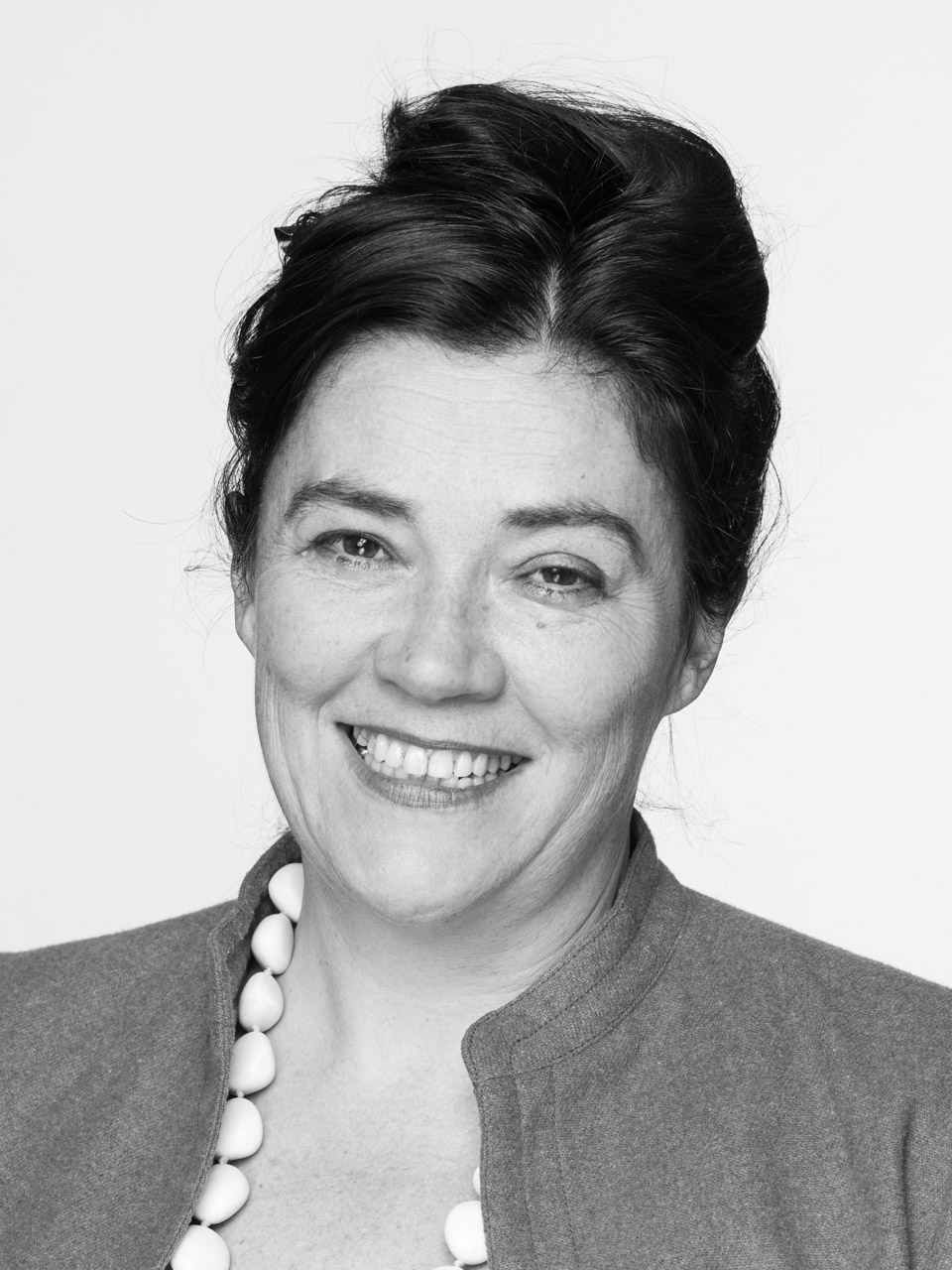 A. Frances JohnsonA. Frances Johnson is the winner of the 2020 Peter Porter Poetry Prize, worth a total of $9,000. This was announced at a ceremony at the Boyd Hub Community Center in Melbourne on January 16.
A. Frances JohnsonA. Frances Johnson is the winner of the 2020 Peter Porter Poetry Prize, worth a total of $9,000. This was announced at a ceremony at the Boyd Hub Community Center in Melbourne on January 16.
A. Frances Johnson's winning poem is titled 'My Father's Thesaurus'. She receives $7,000, while the four other shortlisted poets each receive $500. The full shortlist, including the winning poem, is available to read online and is published in the January–February issue of ABR.
This year’s judges – John Hawke, Bronwyn Lea, and Philip Mead – shortlisted five poems from almost 1,050 entries, from 30 countries. The shortlisted poets were Lachlan Brown (NSW), Claire G. Coleman (Vic.), Ross Gillett (Vic.), A. Frances Johnson (Vic. ), and Julie Manning (QLD).
Congratulations to A. Frances Johnson and to all the poets shortlisted and longlisted in the 2020 Peter Porter Poetry Prize.
In their report the judges noted:
‘This year’s record field demonstrates both the depth and stylistic range evident in this vital area of our literature. The poems were notable for the currency of their engagement with social issues. “My Father’s Thesaurus” by A. Frances Johnson is an unsentimental yet emotive portrayal of the situation of the elderly and their carers.’
On learning of her win, Johnson commented:
‘It was a complete honour to stand shoulder to shoulder with the fine poets on the Peter Porter Prize shortlist. These encouragements for writers in the current cultural and political climate cannot be underestimated. They spur us on to do more, to speak up. I hope my poem honours my late father, Tom, and offers a small bridge to others who have suffered or who are experiencing the terrible affliction of Alzheimer’s. I acknowledge the great work of other Australian poets on dementia topics (Sarah Holland-Batt, Jessica Wilkinson, and others). Terrible mega-fires currently afflict us on the outside, but this illness is a bushfire inside the brain, impossible to contain, still under-resourced. Despite the confusions and word salads, in Dad’s last months we were lucky that there were still ways of finding him, being with him, holding him. I know others have gleaned similar precious communication with loved ones in the last stages of this terrible disease, though sadly, it may not work out that way. Poetry and of course music are often used in aged-care settings to enable sufferers to de-scramble, to maintain a hold on language. Poetry has certainly helped me hold Dad close.’
About A. Frances Johnson
A. Frances Johnson is a writer and artist. She has published three collections of poetry. A fourth collection, Save As, is forthcoming (Puncher & Wattmann, 2020). Her recent collection, Rendition for Harp and Kalashnikov (Puncher & Wattmann, 2017) was shortlisted in the 2018 Melbourne Prize for Literature Best New Writing Award and, in 2017, she took up an Australia Council B.R. Whiting Fellowship to Rome. A novel, Eugene’s Falls (Arcadia 2007), retraces the Victorian journeys of colonial painter Eugene von Guérard. A new novel in progress, The Lost Garden, explores first-contact histories in remote Southern Tasmania, evoking early horticultural attempts to colonise by seed. A monograph, Australian Fiction as Archival Salvage, was published by Brill in 2015.
Further information
The Peter Porter Poetry Prize is one of Australia’s most prestigious poetry awards.
Subscribe to ABR to gain access to this issue online, plus the ABR archive.
Click here for more information about past winners.
We gratefully acknowledge the long-standing support of Morag Fraser AM and Andrew Taylor AM.
2020 ABR Elizabeth Jolley Short Story Prize
Australian Book Review is delighted to announce the shortlist for this year’s ABR Elizabeth Jolley Short Story Prize, worth a total of $12,500. This year’s Jolley Prize received a record field of 1450 entries from 34 countries, and was judged by Gregory Day, Josephine Rowe, and Ellen van Neerven.
ABR will publish the three shortlisted stories in the 2020 August Fiction Issue. Details are listed below on how to attend a Zoom ceremony on August 13, when we will announce the winner.
Congratulations to the shortlisted entrants, and we thank all those who submitted their stories to the Jolley Prize.
The Shortlist
C.J. Garrow for 'Egg Timer'
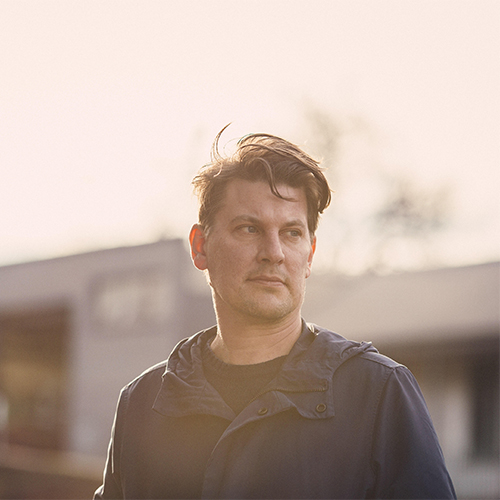 C.J. Garrow is a Melbourne writer whose fiction has been shortlisted for international prizes including the Fish Prize (Ireland) and the George Garrett Fiction Prize (USA). ‘Egg Timer’ is his first published work of fiction.
C.J. Garrow is a Melbourne writer whose fiction has been shortlisted for international prizes including the Fish Prize (Ireland) and the George Garrett Fiction Prize (USA). ‘Egg Timer’ is his first published work of fiction.
Simone Hollander for 'Hieroglyph'
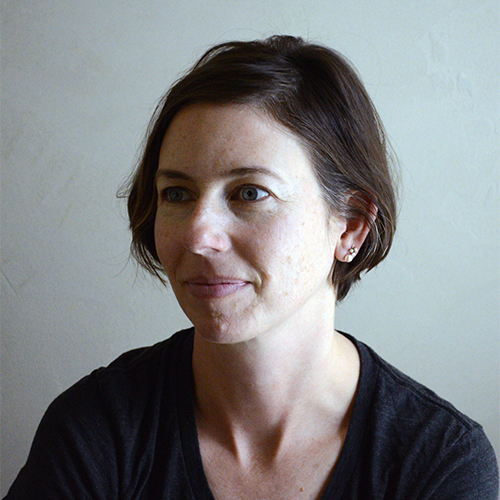 Simone Hollander is a writer from Monterey Bay, California. Her MFA in Creative Writing from the University of Washington was completed on independent study from Dublin, Ireland. She has won prizes for her short fiction and creative non-fiction, and has served as a delegate on a writers’ cultural exchange to China. Her work can be found in PageBoy Magazine, The Weeklings, The Seattle Review, The Dublin Quarterly, and other literary niches. Simone has worked in public, private, and university libraries. She lives with her family, animals, the mountains, in Longmont, Colorado. She is writing a novel.
Simone Hollander is a writer from Monterey Bay, California. Her MFA in Creative Writing from the University of Washington was completed on independent study from Dublin, Ireland. She has won prizes for her short fiction and creative non-fiction, and has served as a delegate on a writers’ cultural exchange to China. Her work can be found in PageBoy Magazine, The Weeklings, The Seattle Review, The Dublin Quarterly, and other literary niches. Simone has worked in public, private, and university libraries. She lives with her family, animals, the mountains, in Longmont, Colorado. She is writing a novel.
Mykaela Saunders for 'River Story'
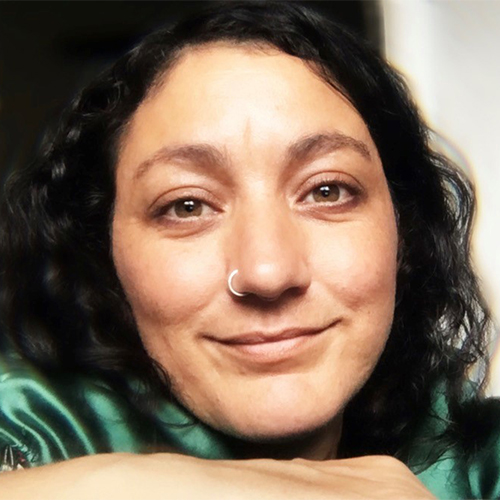 Mykaela Saunders is a Koori writer, teacher, and community researcher. Of Dharug and Lebanese ancestry, she’s working-class and queer, and belongs to the Tweed Aboriginal community. Mykaela has worked in Aboriginal education since 2003, and her research explores trans-generational trauma and healing in her community. Mykaela began writing fiction and poetry in 2017, as part of her Doctor of Arts degree at the University of Sydney. Her work has since been published across forms and disciplines, placed in writing prizes, and attracted funding and fellowships.
Mykaela Saunders is a Koori writer, teacher, and community researcher. Of Dharug and Lebanese ancestry, she’s working-class and queer, and belongs to the Tweed Aboriginal community. Mykaela has worked in Aboriginal education since 2003, and her research explores trans-generational trauma and healing in her community. Mykaela began writing fiction and poetry in 2017, as part of her Doctor of Arts degree at the University of Sydney. Her work has since been published across forms and disciplines, placed in writing prizes, and attracted funding and fellowships.
Highly commended
'Lucky Charms' by Jennifer Down (VIC, Australia)
'I Believe' by V. Sanjay Kumar (India)
'Wait for Me' by Jasmin McGaughey (QLD, Australia)
'Two Africas' by Jean McNeil (UK)
'Bedford Jeune' by Lauren Sarazen (France)
Join us to announce the winner
The winner will be announced at a Zoom ceremony on August 13. The event will feature readings from all the shortlisted authors, with ABR then announcing the winner. This is a free public event and all are welcome, but bookings are essential. A Zoom access link will be sent out prior to the event.
When: 6 for 6.15 pm on Thursday, 13 August 2020
Where: A Zoom ceremony. An access link will be sent out before the event.
Bookings: This is a free public event and all are welcome, but bookings are essential.
How to book: Register your attendance by emailing This email address is being protected from spambots. You need JavaScript enabled to view it.
ABR gratefully acknowledges Ian Dickson's generous support for the Jolley Prize.
Win a holiday in India with Abercrombie & Kent!
Update from Australian Book Review - March 2020
Thank you for your many interesting and thoughtful contributions to the Passage to India competition. In the circumstances, ABR and our partner Abercrombie & Kent think it would be incongruous to announce the winner at this stage, when international travel is moot at best and when such grave issues are uppermost in everyone’s mind. We will name the winner in coming weeks.
About the competition
In a first for Australian Book Review, we are delighted to be partnering with luxury travel company Abercrombie & Kent to offer one lucky ABR subscriber the chance to win a ten-day adventure for two in India worth up to AU$8,250. The prize is Abercrombie & Kent’s 'Essential India’ tour, a seven-day private journey from Delhi to Agra to Jaipur, staying in luxury Taj hotels throughout, plus the winner’s choice of a three-day extension to either Ranthambore, Udaipur, or Varanasi.
To be in the running to win this magnificent prize, subscribers needed to tell us – in fifty to one hundred words – about a book that has inspired them to travel, or to dream of travelling.
Entry for this competition has now closed.
Terms and Conditions apply and can be found here. By entering this promotion you agree that you have read the Terms and Conditions and will abide by them.
2020 Calibre Essay Prize Judges
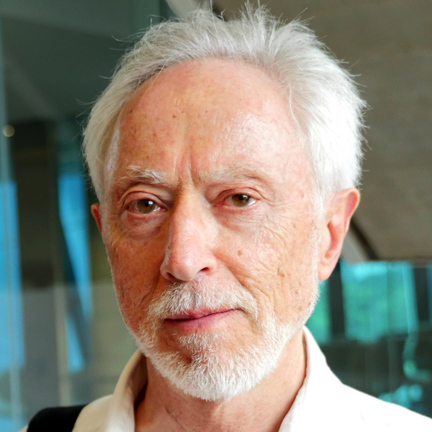 J.M. Coetzee was born in South Africa and educated in South Africa and the United States. He has published nineteen works of fiction, as well as criticism and translations. Among awards he has won are the Booker Prize (twice) and, in 2003, the Nobel Prize for Literature. He is currently Professorial Research Fellow at the University of Adelaide.
J.M. Coetzee was born in South Africa and educated in South Africa and the United States. He has published nineteen works of fiction, as well as criticism and translations. Among awards he has won are the Booker Prize (twice) and, in 2003, the Nobel Prize for Literature. He is currently Professorial Research Fellow at the University of Adelaide.
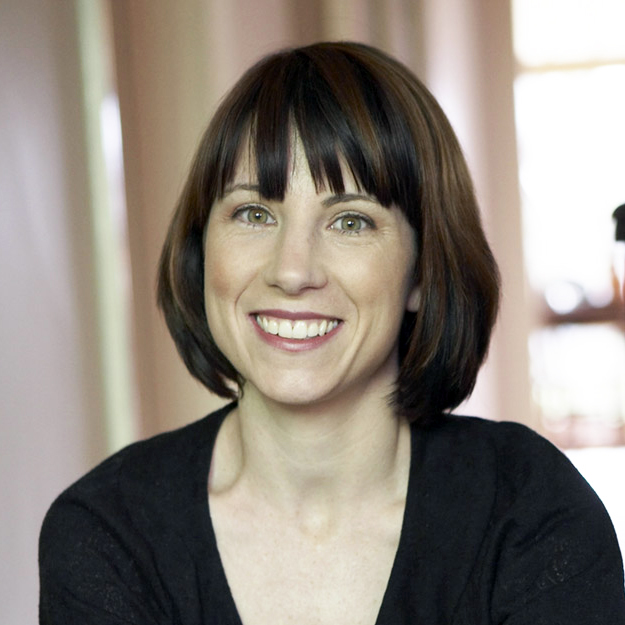 Lisa Gorton, who lives in Melbourne, is a poet, novelist, and critic, and a former Poetry Editor of ABR. She studied at the Universities of Melbourne and Oxford. A Rhodes Scholar, she completed a Masters in Renaissance Literature and a Doctorate on John Donne at Oxford University. Her review essays and poetry have appeared in ABR since 2002. Her first poetry collection, Press Release (2007), won the Victorian Premier’s Prize for Poetry. She has also been awarded the Vincent Buckley Poetry Prize and the Philip Hodgins Memorial Medal. Lisa’s novel The Life of Houses (2015) shared the 2016 Prime Minister’s Award for fiction and received the NSW Premier’s People’s Choice Award. Her third poetry collection Empirical appeared with Giramondo in 2019.
Lisa Gorton, who lives in Melbourne, is a poet, novelist, and critic, and a former Poetry Editor of ABR. She studied at the Universities of Melbourne and Oxford. A Rhodes Scholar, she completed a Masters in Renaissance Literature and a Doctorate on John Donne at Oxford University. Her review essays and poetry have appeared in ABR since 2002. Her first poetry collection, Press Release (2007), won the Victorian Premier’s Prize for Poetry. She has also been awarded the Vincent Buckley Poetry Prize and the Philip Hodgins Memorial Medal. Lisa’s novel The Life of Houses (2015) shared the 2016 Prime Minister’s Award for fiction and received the NSW Premier’s People’s Choice Award. Her third poetry collection Empirical appeared with Giramondo in 2019.
 Peter Rose has been Editor of Australian Book Review since 2001. Previously he was a publisher at Oxford University Press. His reviews and essays have appeared mostly in ABR. He has published six books of poetry, two novels, and a family memoir, Rose Boys (Text Publishing), which won the 2003 National Biography Award. He edited the 2007 and 2008 editions of The Best Australian Poems (Black Inc.). His most recent publication is a volume of poems, The Subject of Feeling (UWA Publishing, 2015).
Peter Rose has been Editor of Australian Book Review since 2001. Previously he was a publisher at Oxford University Press. His reviews and essays have appeared mostly in ABR. He has published six books of poetry, two novels, and a family memoir, Rose Boys (Text Publishing), which won the 2003 National Biography Award. He edited the 2007 and 2008 editions of The Best Australian Poems (Black Inc.). His most recent publication is a volume of poems, The Subject of Feeling (UWA Publishing, 2015).


